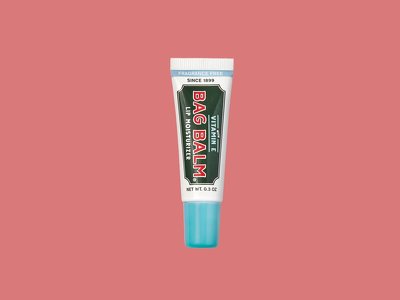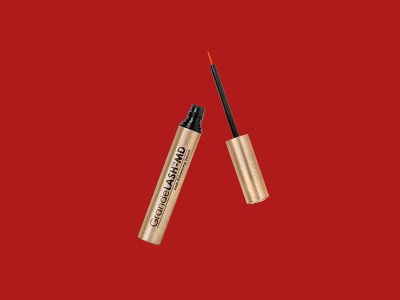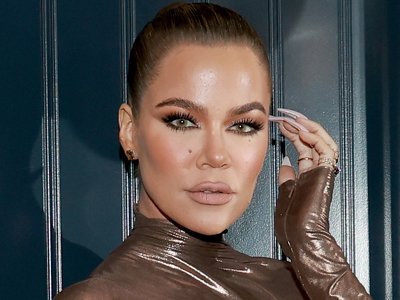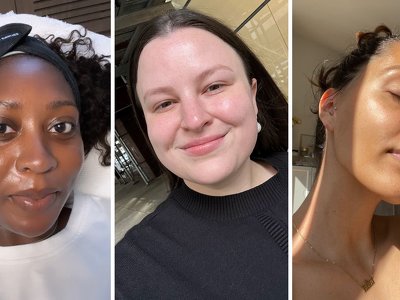How I Deal With Having Low Libido

All products are independently selected by our editors. If you buy something, we may earn an affiliate commission.
Welcome to Doing It, a column where sex educator Dr. Varuna Srinivasan explores the deep connections between sex and emotions. This month, they speak to individuals with perceived or diagnosed low libido to learn how it's affected their relationships and strategies they have for navigating discrepancies in desire.
In the evolutionary sense, libido — or a sex drive — exists to further human reproduction. This biological need for sexual activity drives our desires and sexual interests. A person’s libido is influenced by hormones, age, and other environmental factors.
But 2.5 million years after humans first waddled our way up the food chain, libido has societal implications as well. In a psychological sense, libido helps us understand our sexuality. Who are we attracted to and how much? What turns you off? What turns you on?
And low libido manifests differently in the sexes. It is apparently more common in women than in men, but there are many other factors that play a role in sustaining one’s libido. These factors include hormonal fluctuations, issues related to weight, diet, physical activity, drinking, and drug activity, says Shoma Datta-Thomas, MD, a board-certified ob-gyn based in New York City. There is growing research that shows some chronic diseases, such as diabetes and hypertension, affect libido. Antidepressants and mental health conditions also have the potential to lower libido.
Remember when I mentioned women are more likely to experience low libido than men? That might not be entirely (or even mostly) due to biology: Researchers are now theorizing that heteronormative gender inequities are contributing factors to low libido in women. Specifically, one case study notes that the blurred lines between the role of mother and partner, uneven divisions of labor around the household, objectification of women, and the influence of traditional gender roles when it comes to sex could all be contributing to low sexual desire in women who are partnered with men.
So if libido is significantly affected by several factors, many of which are truly out of our control, then why are we so hard on ourselves about it? There have been many moments in my own relationship where my and my partner’s desire to have sex was mismatched. While I can achieve and sustain an orgasm, feelings of arousal are hard to produce. A lot of the pressure to “perform” is coming from myself. I feel guilty, convincing myself that if I am not having sex with my partner regularly, then I would have failed my duties as a wife. Even worse is the feeling that your body is broken.
I have found comfort in reading stories from other folks by visiting several digital communal spaces where people exchange stories, reassurance, and, in some cases, solutions. A lot of people (like myself) turn to these spaces because their issues weren’t adequately addressed by a physician. Almost everyone in these groups are there to find answers to two questions: What’s wrong with me? And how do I fix it?
In addition to a lack of clinical data that studies sexual functioning in women, mainstream narratives cause us to pathologize a natural consequence of our changing bodies. More often than not, low libido can be attributed to stressful things that are out of our control, such as your husband not folding the laundry or the economic state of the country. Some of these issues do not have quick fixes so, perhaps, all we are seeking from these forums is reassurance and the emotional tools to cope with these changes.
Dr. Datta-Thomas suggests that people who perceive themselves as having low libido (most symptoms of low libido are self-reported, but there are clinical assessments to validate and diagnose sexual desire issues) do a self-audit of their lives. “Don’t rule out that it could be a health issue, but get the data," she says. “What are your habits? Where are your hormones at? Where is your relationship? What is going on in your life? These are all things that need to be investigated.”
Treating low libido typically involves getting to the root of the problem, whether that be a medical condition or aspects of your life (looking at you, burnout) that make it impossible to think about having sex. But I’ve found that hearing from others who are dealing with similar feelings (or a lack thereof) can be a source of great comfort. To get a sense of how others are dealing with low libido, I spoke to seven people to learn more about their experiences with sex, and how their perceived (or diagnosed) decrease in libido has affected them, and what they are currently doing to cope.
I was raised in a stressful environment and have had anxiety and some level of depression since I was a kid. My body and mind have never been on the same page. My body sees penetration as a threat, even though I don't have any memories of abuse. This issue has significantly affected my libido and mental health over the last 10 years. The thought of initiating sex with someone only to not fully give into it or disappoint them is emotionally draining.
By Aliza Kelly
By Kara Nesvig
By Marci Robin
I also have vitamin D and B deficiency along with diagnosed PCOS. I had never felt the need to address my low libido [until I got married.] My insecurities about being in a sexless marriage after finding out that my body reacted to this man the same way it did to others were disturbing.
“My doctor asked if I was married. I said yes, but we don't have penetrative sex. She laughed and said, ‘Wow, your husband is so patient to stay.’”
When I went to an ob-gyn because I've never had a pap smear, I shared my inexplicable fear of penetration to her. She asked me if I was married. I said yes but we don't have penetrative sex and she laughed and said, “Wow, your husband is so patient to stay.” This one experience put me through four bad years of insecurities, low self esteem, and reprimanding myself for being this way even though I don't remember being abused or raped.
After much needed reassurance from my husband that he did not miss or desire penetration, we were able to move past this and focus on what else we could do for each other. Our love language, surprisingly, is touch and we really enjoy cuddling and touching each other constantly. It took me years of therapy, gratitude journaling, watching [people share] similar experiences on TikTok, and one good marriage counselor to realize that penetration does not have to be the end goal. I'm slowly starting to learn and appreciate what my priorities are, and trying to stop blaming and punishing myself for something that's not fully in my control.
I have a complicated relationship with sex. When I was young, I used to talk to a lot of men on the internet. I was 13 but these men would claim to love me and ask me to send nudes. Since growing up, the realization of what happened was devastating so I’ve kind of always hated sex, thinking it was the worst thing in the world. These feelings have been a primary cause of issues in all my relationships.
“I don't really enjoy sex with my husband because my pleasure has never been centered.”
These memories continue to haunt me and affect my sex life with my husband. My husband has various kinks, and though I take part in them to make him feel satisfied and happy, I am not really that into them. I don’t really enjoy sex with my husband because my pleasure has never been centered. He has never made an effort to help me orgasm. I’m trying to work up the courage to see a therapist.
Although I have a low libido, I have always enjoyed self-pleasure. I watch porn, especially other women while masturbating. Truth be told, I am still struggling with my libido. I want to work on many things, but I don't know where to start.
I am demisexual so I have only truly been able to have sex with someone after we form a deep emotional connection. I have truly never had a high libido unless I'm in a very committed relationship. I have orgasmed with only one of my many partners, many months into our relationship. It was the longest and most vulnerable I had been in a relationship and that partner had nothing to do with it physically. The rest of the time I have never orgasmed, even though I've tried masturbation and various forms of inter and outercourse with other sexual partners.
By Aliza Kelly
By Kara Nesvig
By Marci Robin
I often felt incomplete. I still feel that way at some level — though I'm trying to rid myself of this thought process — despite years of research and advocacy for sex positivity for all sexual orientations, the ace [or asexual, which is a label people use to describe themselves if they experience no sexual attraction towards any gender] spectrum included. Like I was frigid or a prude or not daring enough because I didn't feel horny. And so I tried multiple sexual partners and positions but kept feeling worse about myself and hating my body even more. It was affecting my academics and self-esteem, and so I decided to seek help.
“Sex for me now is a choice. I realized there was nothing fundamentally wrong with my body.”
Growing up, I was someone who wasn't made to feel beautiful, or desired, and this was especially jarring in my adolescence. The trope of the "cool, hypersexual woman" or “manic pixie dream girl” was something that was fed to me as desirable. Seeking external validation, I tried to live up to that trope, and hated my body for not living up to it, for the longest time.
Sex for me now is a choice. I realized there was nothing fundamentally wrong with my body unless I was dissatisfied with my libido. I'm in the process of making peace with the fact that I do have low libido outside of a relationship. I'm conditioning myself to abide by the "you do you, what goes on between your legs isn't anyone's business" school of thought.
I always thought I had a high libido when I was 17 but thinking back, I realized
- Last
News by day
27 of April 2024







